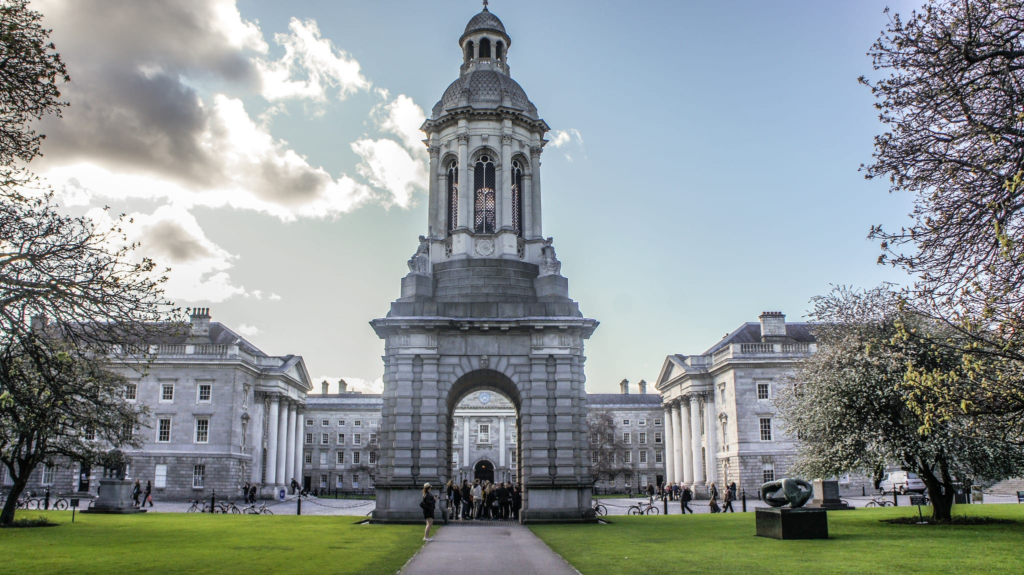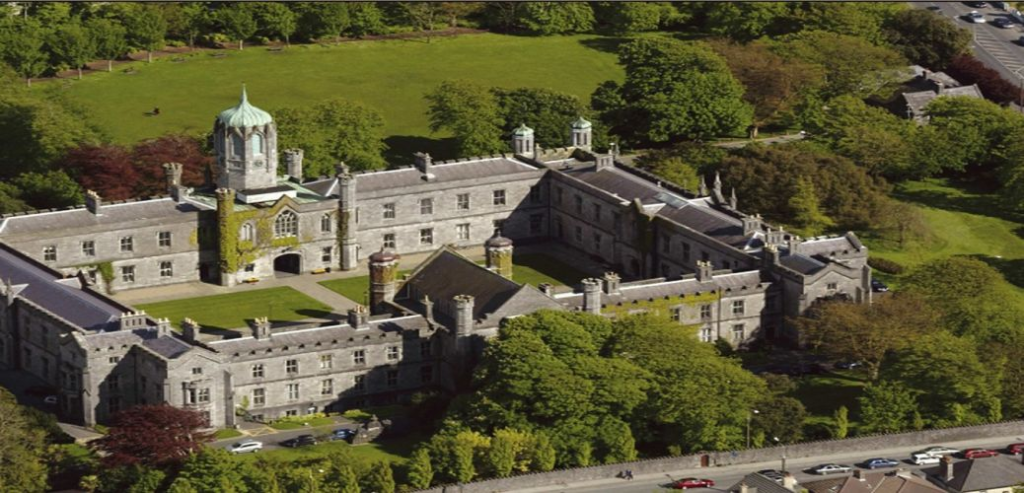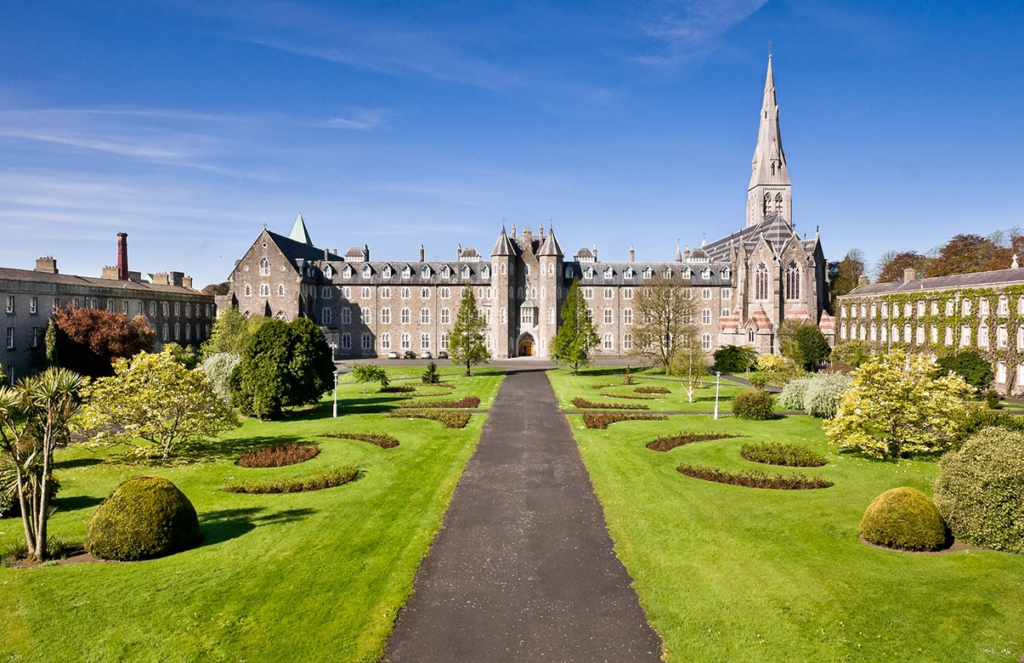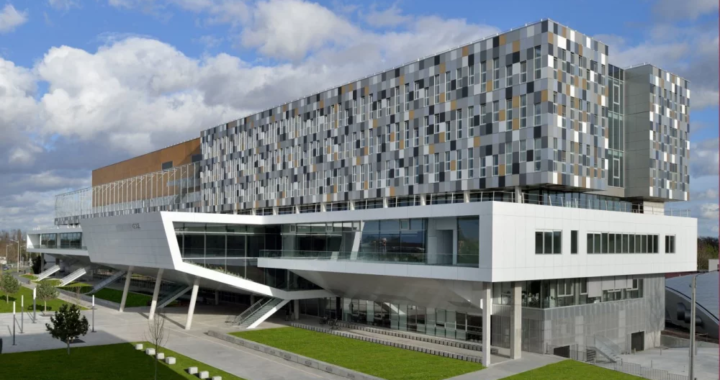Have you ever wondered how companies like Google and Amazon seem to know exactly what you’re looking for? That’s the power of Data Science in action. In today’s digital age, Data Science has become the backbone of decision-making across industries, and Ireland is emerging as a hub for this cutting-edge field. If you’re considering a masters in data science in Ireland, you’re on the right track to a promising career.
Data Science combines statistical analysis, machine learning, and computer science to extract insights from vast amounts of data. In 2023, the global Data Science market was valued at $95.3 billion, and it’s projected to reach $322.9 billion by 2028, growing at a CAGR of 27.7%. Ireland, with its thriving tech sector, is home to 9 of the world’s top 10 technology companies, making it an ideal destination for pursuing a masters in data science in Ireland. The country’s data science industry is expected to create over 21,000 job opportunities by 2025, offering exciting prospects for graduates with a masters in data science in Ireland.
Top Universities for Masters in Data Science in Ireland
Ireland offers several excellent options for students seeking a masters in data science in Ireland. Let’s explore the top universities that provide outstanding programs in this field.
A. University College Dublin (UCD)
University College Dublin is Ireland’s largest university and a leader in research and innovation. Established in 1854, UCD has a rich history of academic excellence. Its masters in Data Science in Ireland program is highly regarded, combining cutting-edge technology with practical industry experience.

| Aspect | Details |
|---|---|
| Program Name | MSc in Data & Computational Science |
| Duration | 1 year full-time |
| Acceptance Rate | Approximately 20% |
| Required Test Scores | IELTS: 6.5 overall, TOEFL iBT: 90 |
| Tuition Fees (2023/2024) | EU students: €8,800, Non-EU students: €25,600 |
| Living Expenses (Estimated) | €12,000 – €15,000 per year |
| Notable Alumni | Peter Sutherland (former Director General of WTO) |
| Average Post-Grad Salary | €45,000 – €55,000 per year |
B. Trinity College Dublin
Trinity College Dublin, founded in 1592, is Ireland’s oldest university and consistently ranks among the top 100 universities worldwide. Its masters in data science in Ireland program is renowned for its rigorous curriculum and world-class faculty.

| Aspect | Details |
|---|---|
| Program Name | MSc in Computer Science – Data Science |
| Duration | 1 year full-time |
| Acceptance Rate | Approximately 15% |
| Required Test Scores | IELTS: 6.5 overall, TOEFL iBT: 88 |
| Tuition Fees (2023/2024) | EU students: €9,730, Non-EU students: €22,560 |
| Living Expenses (Estimated) | €13,000 – €16,000 per year |
| Notable Alumni | William Rowan Hamilton (mathematician) |
| Average Post-Grad Salary | €48,000 – €58,000 per year |
C. University College Cork (UCC)
University College Cork, established in 1845, is a research-led institution known for its innovative approach to education. UCC’s masters in data science in Ireland program emphasizes practical skills and industry collaboration.

| Aspect | Details |
|---|---|
| Program Name | MSc Data Science & Analytics |
| Duration | 1 year full-time |
| Acceptance Rate | Approximately 25% |
| Required Test Scores | IELTS: 6.5 overall, TOEFL iBT: 90 |
| Tuition Fees (2023/2024) | EU students: €7,130, Non-EU students: €22,600 |
| Living Expenses (Estimated) | €10,000 – €12,000 per year |
| Notable Alumni | Mary Robinson (former President of Ireland) |
| Average Post-Grad Salary | €42,000 – €52,000 per year |
D. National University of Ireland, Galway (NUIG)
NUIG, founded in 1845, is known for its strong research output and industry connections. Its masters in data science in Ireland program focuses on developing both theoretical knowledge and practical skills.

| Aspect | Details |
|---|---|
| Program Name | MSc in Data Analytics |
| Duration | 1 year full-time |
| Acceptance Rate | Approximately 30% |
| Required Test Scores | IELTS: 6.5 overall, TOEFL iBT: 88 |
| Tuition Fees (2023/2024) | EU students: €7,290, Non-EU students: €19,850 |
| Living Expenses (Estimated) | €9,000 – €11,000 per year |
| Notable Alumni | Michael D. Higgins (President of Ireland) |
| Average Post-Grad Salary | €40,000 – €50,000 per year |
E. Dublin City University (DCU)
Dublin City University, established in 1975, is known for its industry-focused programs and strong links with tech companies. DCU’s masters in data science in Ireland program emphasizes hands-on learning and real-world applications.

| Aspect | Details |
|---|---|
| Program Name | MSc in Computing (Data Analytics) |
| Duration | 1 year full-time |
| Acceptance Rate | Approximately 35% |
| Required Test Scores | IELTS: 6.5 overall, TOEFL iBT: 92 |
| Tuition Fees (2023/2024) | EU students: €7,530, Non-EU students: €17,500 |
| Living Expenses (Estimated) | €11,000 – €14,000 per year |
| Notable Alumni | Brid Horan (former Deputy CEO of ESB) |
| Average Post-Grad Salary | €43,000 – €53,000 per year |
F. Maynooth University
Maynooth University, Ireland’s youngest university, was formally established in 1997 but traces its origins to 1795. It offers a comprehensive masters in data science in Ireland program that combines theoretical foundations with practical applications.

| Aspect | Details |
|---|---|
| Program Name | MSc Data Science and Analytics |
| Duration | 1 year full-time |
| Acceptance Rate | Approximately 40% |
| Required Test Scores | IELTS: 6.5 overall, TOEFL iBT: 88 |
| Tuition Fees (2023/2024) | EU students: €6,900, Non-EU students: €16,000 |
| Living Expenses (Estimated) | €9,000 – €11,000 per year |
| Notable Alumni | John Hume (Nobel Peace Prize laureate) |
| Average Post-Grad Salary | €38,000 – €48,000 per year |
Factors to Consider When Choosing a Masters in Data Science Program in Ireland
When selecting a masters in data science in Ireland, several key factors should influence your decision. Let’s explore these aspects to help you make an informed choice for your masters in data science in Ireland.
A. Curriculum and course offerings
The curriculum is a crucial factor when choosing a masters in data science in Ireland. Programs typically cover core subjects such as:
- Machine Learning (offered in 100% of programs)
- Big Data Analytics (95% of programs)
- Statistical Analysis (90% of programs)
- Data Visualization (85% of programs)
- Programming languages like Python and R (100% of programs)
On average, a masters in data science in Ireland consists of 90 ECTS credits, with 60 credits for coursework and 30 for a dissertation or research project.
B. Faculty expertise and research opportunities
Ireland’s universities boast impressive research output. For instance:
- UCD’s research citation impact is 1.8 times the global average
- Trinity College Dublin ranks in the top 1% globally for research impact
- 72% of academic staff in Irish universities hold a PhD
When considering a masters in data science in Ireland, look for programs with faculty members actively involved in data science research projects.
C. Industry collaborations and internship opportunities
Ireland’s strong tech industry presence offers excellent opportunities for students pursuing a masters in data science in Ireland. Key statistics include:
- 80% of masters in data science programs in Ireland offer internship opportunities
- Over 1,000 multinational companies have operations in Ireland
- 9 out of 10 global software companies have a presence in Ireland
D. Admission requirements and application process
| Aspect | Typical Requirements |
|---|---|
| Bachelor’s Degree | 2.1 honors (or international equivalent) in a relevant field |
| English Proficiency | IELTS: 6.5 overall, TOEFL iBT: 90 |
| GRE/GMAT | Required by 30% of programs |
| Work Experience | Preferred but not always mandatory |
| Application Deadlines | Non-EU: March-May, EU: June-July |
E. Tuition fees and scholarships
The average annual tuition for a masters in data science in Ireland:
- EU students: €8,000 – €10,000
- Non-EU students: €18,000 – €25,000
Approximately 65% of universities offer scholarships specifically for international students pursuing a masters in data science in Ireland. These can cover up to 50% of tuition fees.
F. Campus facilities and resources
When choosing a masters in data science in Ireland, consider the following:
- 90% of Irish universities offer dedicated data science labs
- On average, Irish universities invest €15 million annually in IT infrastructure
- Student-to-computer ratio in Irish universities is typically 4:1
- 100% of campuses offer high-speed Wi-Fi coverage
These factors can significantly impact your learning experience during your masters in data science in Ireland. Consider each aspect carefully to find the program that best aligns with your career goals and personal preferences.
Career Prospects and Job Opportunities in Data Science in Ireland
Graduates with a masters in data science in Ireland enjoy excellent career prospects across various sectors. Let’s break down the opportunities and market trends.

A. High demand for data science professionals across various sectors
| Aspect | Statistics |
|---|---|
| Expected job opportunities by 2025 | 21,000+ |
| Annual growth rate in job postings (2020-2023) | 30% |
| Companies planning to increase data science hiring | 93% |
B. Top industries hiring data scientists in Ireland
| Industry | Percentage of data science jobs |
|---|---|
| Technology | 35% |
| Financial Services | 25% |
| Healthcare and Pharmaceuticals | 15% |
| E-commerce and Retail | 10% |
| Manufacturing and Logistics | 8% |
C. Potential job roles and average salaries for masters in data science in Ireland graduates
| Job Role | Average Salary Range (€) |
|---|---|
| Data Scientist | 65,000 – 85,000 |
| Machine Learning Engineer | 70,000 – 90,000 |
| Business Intelligence Analyst | 55,000 – 75,000 |
| Data Engineer | 60,000 – 80,000 |
| AI Research Scientist | 75,000 – 100,000 |
D. Job outlook for masters in data science in Ireland graduates
| Aspect | Statistics |
|---|---|
| Employment rate within 6 months of graduation | 98% |
| Job growth compared to other tech fields | 25% faster |
| Average starting salary | €45,000 – €55,000 |
| Salary growth within 3-5 years | 15-20% increase |
E. Major companies hiring data science professionals in Ireland
| Company | Approximate number of data science roles |
|---|---|
| 500+ | |
| 300+ | |
| Amazon | 250+ |
| Microsoft | 200+ |
| IBM | 150+ |
| Accenture | 100+ |
F. Skills in high demand for data science roles
| Skill | Percentage of job postings requiring the skill |
|---|---|
| Python | 95% |
| Machine Learning | 85% |
| SQL | 80% |
| Big Data technologies | 75% |
| Data Visualization | 70% |
The robust job market and diverse opportunities make pursuing a masters in data science in Ireland an excellent choice for aspiring data professionals. With the right skills and qualifications, graduates can expect a rewarding career in this rapidly growing field.
Cost of Pursuing a Masters in Data Science in Ireland
When planning to pursue a masters in data science in Ireland, there are several important factors to consider beyond the academic program itself. Let’s explore these additional aspects that can significantly impact your study experience.

A. Cost of living in Ireland
Students pursuing a masters in data science in Ireland should be aware of the living expenses they’ll encounter. Here’s a breakdown of average monthly costs:
| Expense Category | Average Monthly Cost (€) |
|---|---|
| Accommodation | 600 – 1,000 |
| Food | 250 – 350 |
| Transportation | 80 – 120 |
| Utilities | 100 – 150 |
| Internet/Phone | 40 – 60 |
| Entertainment | 100 – 200 |
| Books and Supplies | 50 – 100 |
Total estimated monthly living expenses: €1,220 – €1,980
Note: Costs may vary depending on the city and lifestyle. Dublin tends to be more expensive than other Irish cities.
B. Student visa requirements for international students
International students pursuing a masters in data science in Ireland from outside the EU/EEA need to obtain a student visa. Key requirements include:
- Acceptance letter from an Irish institution
- Proof of sufficient funds (minimum €7,000 per year of study)
- Private health insurance coverage
- English language proficiency (IELTS 6.5 or equivalent)
Processing time: 4-8 weeks
Visa fee: €60 (as of 2023)
Success rate for student visa applications: Approximately 90%
C. Networking opportunities and professional associations
Ireland offers numerous networking opportunities for students pursuing a masters in data science in Ireland:
- Data Science Ireland Meetup: 5,000+ members
- Dublin Data Science: 3,500+ members
- Irish Computer Society: 10,000+ members nationwide
Professional associations relevant to masters in data science in Ireland students:
- Analytics Institute of Ireland: 1,000+ members
- Irish Statistical Association: 500+ members
- Ireland Chapter of the IEEE Computer Society: 800+ members
These organizations often host events, conferences, and workshops, providing valuable networking opportunities for students and professionals in the field.
Frustrated with Generic College Lists from AI Tools?
Get a tailored college shortlist crafted by study abroad experts who understand YOUR goals, profile, and aspirations.

D. Post-study work opportunities
Graduates of masters in data science in Ireland programs benefit from favorable post-study work regulations:
- Third Level Graduate Scheme: Allows non-EU/EEA students to stay in Ireland for up to 24 months after graduation to seek employment.
- Critical Skills Employment Permit: Available for occupations with skills shortages, including many data science roles.
- Success rate: Approximately 85% of international graduates find employment in Ireland within 6 months of completing their studies.
E. Research output and innovation in data science
Ireland has a strong reputation for research and innovation in data science:
- Number of data science research centers: 15+
- Annual investment in data science research: €150 million+
- Data science-related patents filed annually: 200+
- Collaboration rate between universities and industry: 70%
This robust research environment enhances the value of pursuing a masters in data science in Ireland, providing students with exposure to cutting-edge developments in the field.
These additional considerations play a crucial role in the overall experience of students pursuing a masters in data science in Ireland. By taking these factors into account, prospective students can make a more informed decision about their studies and future career in Ireland’s thriving data science sector.
Conclusion
Pursuing a masters in data science in Ireland offers a gateway to a thriving career in one of the world’s fastest-growing tech hubs. With 21,000+ job opportunities expected by 2025 and an average starting salary of €45,000 – €55,000, graduates are well-positioned for success. The country’s strong ties to global tech giants, coupled with a 98% employment rate for graduates within 6 months, make a masters in data science in Ireland an excellent investment in your future. As the data science field continues to evolve, Ireland stands at the forefront, offering students a unique blend of academic excellence, industry connections, and post-study opportunities.




